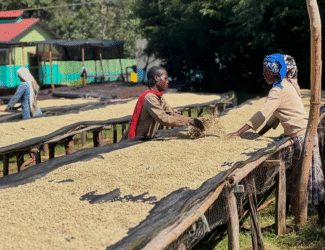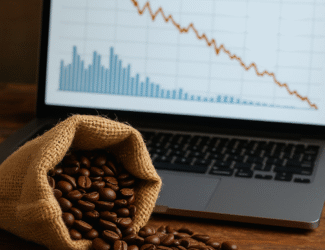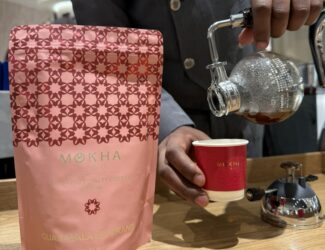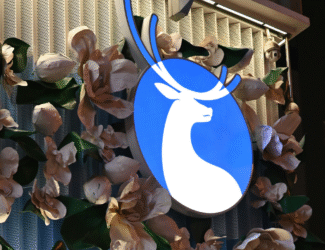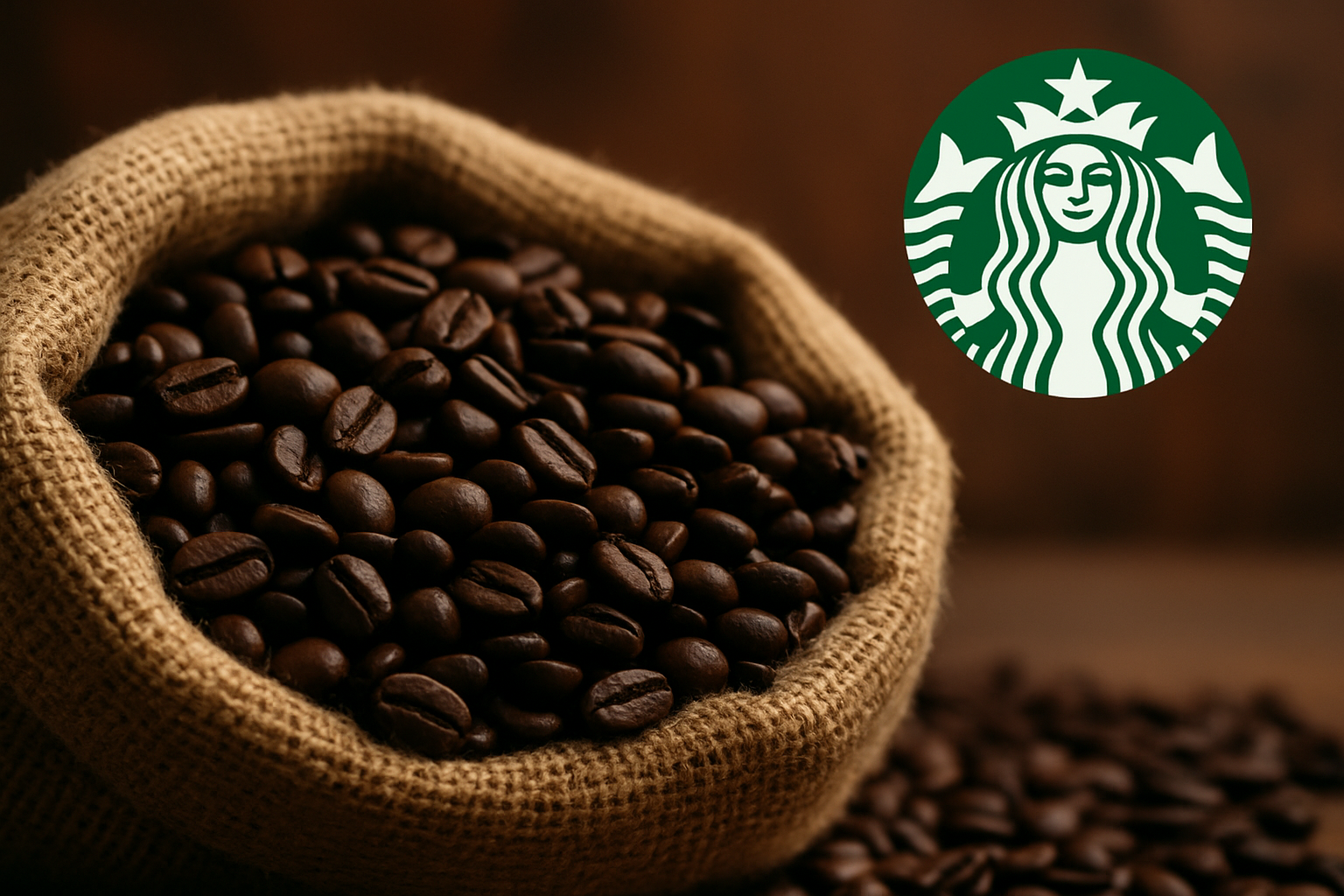
Starbucks Faces Pressure as U.S. Tariffs on Brazilian Coffee Drive Up Costs
Dubai, August 5, 2025 – (Qahwa World) – Starbucks is bracing for rising costs as the U.S. imposes a 50% tariff on Brazilian coffee imports starting August 6. As Brazil remains the largest coffee supplier to the U.S., the new tariff could significantly impact Starbucks’ supply chain—especially for its ready-to-drink beverages and packaged beans.
According to TD Cowen analyst Andrew Charles, these increased costs could raise annual expenses in Starbucks’ packaged division by 3.5%, leading to a projected $0.02 dip in earnings per share.
The timing couldn’t be worse. Starbucks’ operating margin dropped to 13.3% in the latest quarter, down from 21% a year earlier. Meanwhile, U.S. same-store sales have declined for six consecutive quarters. Though quarterly revenue rose 4% year-over-year to $9.5 billion—beating Wall Street’s estimate of $9.3 billion—adjusted earnings per share came in at $0.50, falling short of the expected $0.65.
Starbucks stock has declined slightly since the earnings release. As of now, shares are down 1% year-to-date, compared to the S&P 500’s 8% gain.
Despite these challenges, Starbucks CEO Brian Niccol stated that prices will remain unchanged through fiscal 2025. However, he left the door open to future increases:
“We’ll be smart about how we go about increasing any of those prices,” Niccol said in an interview with Yahoo Finance’s Opening Bid.
Other major players like Keurig Dr Pepper and J.M. Smucker have already raised prices in response to rising coffee costs. Starbucks may soon have no choice but to follow, especially as it faces stiff competition from fast-growing rivals like Luckin Coffee.
Michael Gunther, head of research at Consumer Edge, warned that Starbucks risks alienating younger customers if prices rise. The 18–34-year-old demographic, which is highly price-sensitive, has already shown signs of shifting loyalty.
To reduce dependence on Brazil, Starbucks has been diversifying its sourcing and investing more in Central American coffee farms—a strategy it began implementing last year. A company spokesperson confirmed that Starbucks currently sources arabica coffee from 30 countries. Still, TD Cowen estimates that Brazilian beans account for 22% of its coffee costs in North America.
Bernstein analyst Danilo Gargiulo projected that the broader U.S. coffee market could see a 15%–20% retail price hike as a result of the tariffs. However, Starbucks’ hedging strategies may help offset some of the impact by locking in coffee prices in advance.
The industry is already pivoting to alternative sources such as Vietnam and Colombia. But Duane Stanford, editor at Beverage Digest, noted that shifting supply chains is not easy:
“There is zero doubt that they [Starbucks] are working hard to figure out how much supply they can shift, but it’s a challenging task,” he said.
Complicating matters further is policy uncertainty. While Vietnam faces lower tariffs than Brazil, it’s unclear how long any of these duties will remain in place.
“The company has to decide how much effort to put into these alternatives without knowing whether the tariffs will remain in place,” Stanford added.
With tariffs looming and costs climbing, Starbucks’ ability to balance margins, maintain pricing, and retain younger customers will be critical in the months ahead.
